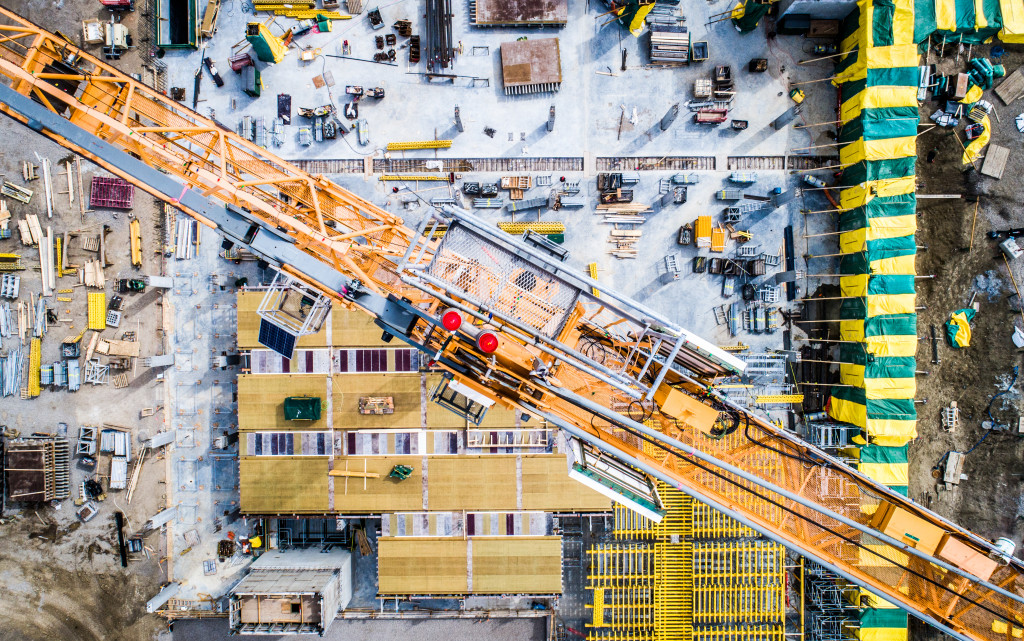- Create a clear equipment management plan to keep track of each tool, vehicle, and who is responsible for their maintenance.
- Perform regular maintenance and inspections to identify potential issues early on.
- Secure storage facilities with walls, gates, motion-activated lights, and security cameras
- Invest in reliable heavy equipment repair services when needed
- Insure your equipment for accident protection, reduced downtime, protection against theft, and better budgeting
As an owner of a construction firm, you rely heavily on your equipment to get the job done smoothly and on time. Losing your tools, machinery, or vehicles can cause massive project disruptions and setbacks.
Protecting your equipment against theft and damage is crucial for the sustainability and growth of your business. Luckily, there are several steps you can take to safeguard your valuable assets. This article will explore tips and best practices to protect your construction firm’s equipment.
Define a Clear Equipment Management Plan
Creating a structured management plan is the first step in protecting your construction equipment. The program should outline how you will keep track of each tool or vehicle, where you will store them when not in use, and who will be responsible for their maintenance and repairs. A reliable GPS tracking system can help you keep track of your equipment’s location and prevent theft or unauthorized use.
When defining your plan, make sure you consider the safety of your employees. Provide clear instructions on using each piece of equipment and strictly enforce protocols for inspecting them before and after each job.
Perform Regular Maintenance and Inspections
Regular equipment maintenance and inspections can help identify potential issues early on and prevent costly repairs and replacements. Train your employees on equipment maintenance and make it part of their daily routine. Keeping your machines in top-notch condition increases their longevity, ensuring you maximize your investment.
It’s also essential to be proactive in repairing damaged or malfunctioning parts. Invest in reliable heavy equipment repair services promptly once your technicians identify any issues. Doing so can help prevent more extensive and expensive repairs down the road.
Secure Your Storage Facilities
Secure and locked storage facilities are critical in safeguarding your equipment from thieves or vandals. Your storage area should have sturdy walls and gates, motion-activated lights, and security cameras to monitor activity around the clock. Keep track of who has access to the storage facility and develop strict protocols for accessing it, such as signing in and out of the facility.
Insure Your Equipment
For construction companies, their equipment is the backbone of their business. Without these tools, most projects would be impossible to complete. However, the very nature of these pieces of equipment means that accidents, breakdowns, and other issues are more common than you would like to admit. So, it is essential to protect these valuable assets by insuring them. What are the benefits?
Protection in Case of Accidents
Construction sites can be dangerous, and accidents are unfortunately all too common. Insuring your equipment means that if it is involved in a collision, fire, or other incidents, you are not left to shoulder the cost of repair or replacement. The insurance will cover the cost and ensure your business stays on track.
Reduced Downtime
Equipment breakdowns happen, and they often occur at the most inconvenient times. This can lead to costly downtime and missed deadlines. Insuring your construction equipment can help you recover more quickly from these setbacks, as many policies include coverage for rental equipment to keep your project on track.
Protection Against Theft
Construction equipment is a valuable target for thieves, and it can be incredibly difficult to get it back once stolen. With insurance in place, you can have peace of mind knowing that if your equipment is stolen, you will be able to replace it quickly and with minimal hassle.
Better Budgeting and Cash Flow Management

Insuring your construction equipment allows you to better manage your business finances. Instead of worrying about unexpected and significant repair/replacement costs, you can budget for insurance premiums. This can help you to maintain cash flow and make better business decisions.
Educate Your Employees

Your employees are the first line of defense in protecting your equipment. Train them on best practices for equipment security and maintenance, including proper locking and storing, reporting any suspicious activity, and taking swift action in an emergency. Regularly communicate the importance of equipment safety in team meetings and reward individuals who demonstrate exceptional performance in equipment management.
Final Thoughts
Protecting your construction equipment is not an option but necessary if you want your business to thrive. By defining a clear equipment management plan, securing your storage facilities, insuring your equipment, performing regular maintenance and inspections, and educating your employees, you can safeguard your valuable assets and mitigate the risks of theft and damage. A little investment in equipment security today can save you significant losses and disruptions in the long run.

